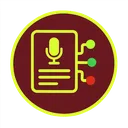
Artificial intelligence is transforming how we create — not just how we code. A recent study from the University of Exeter and University College London (UCL), published in Science Advances, explores a question that lies at the heart of the creative revolution: can AI make us more creative — or does it make us all sound the same?
The research examines how AI influences the originality and diversity of creative writing, shedding light on both the opportunities and the risks of machine-assisted creativity. It’s a rare, data-driven look into the intersection of art, psychology, and technology — and what it means for writers, designers, and creators everywhere.
The Study: How AI Shapes Human Creativity
The experiment involved 293 participants who were each asked to write short, eight-sentence stories. Some writers were given one or more AI-generated prompts to inspire their work, while others wrote independently. The goal was to measure how these prompts influenced the perceived novelty and usefulness of the finished stories.
The results were striking. Stories written with AI assistance scored around 8–9% higher in novelty and usefulness compared to those written without help. For participants identified as “lower-creativity” writers, the boost was even greater — a 10–11% improvement in creativity metrics and a remarkable 26.6% increase in overall writing quality. These writers also described the process as 22.6% more enjoyable and 15.2% less boring when using AI.
In other words, AI didn’t just help them write better — it made the act of writing more engaging and fun.
The Shadow Side: When Creativity Becomes Homogenized
But there’s a catch. The same study found that stories written with AI were 10.7% more similar to each other than those written independently. While individual creativity improved, collective originality declined. The researchers describe this as a “social dilemma”: the pursuit of personal improvement through AI may inadvertently lead to a narrowing of creative diversity across society.
This tension between enhancement and homogenization captures the central challenge of AI in creative work — how to leverage the power of the machine without losing the uniqueness of the human voice.
Implications for the Creative Industry
For creative professionals in marketing, design, content, and storytelling, the implications are profound. AI can help overcome writer’s block, accelerate ideation, and polish final output — but over-reliance risks producing content that feels polished yet predictable. The efficiency of AI may inadvertently suppress the messiness that makes human creativity so distinct.
Agencies and teams adopting AI-powered tools need to find a balance. The most successful use cases will be those that amplify human perspective rather than replace it — where AI acts as a collaborator instead of a creator.
Balancing Human and Machine Creativity
So, where should we draw the line between machine-driven efficiency and authentic human expression? The answer likely lies in how we design our creative processes. Integrating AI responsibly means recognizing both its strengths and its biases, encouraging diversity of inputs, and keeping human oversight central to the final outcome.
At its best, AI can serve as a mirror — reflecting new ways of thinking, while reminding us of what’s irreplaceably human.
Looking Ahead: What Comes Next
The University of Exeter and UCL researchers plan to expand this work by testing different creative domains, including visual art, music, and design. Meanwhile, WAi Forward will continue exploring practical frameworks for creative teams who want to use AI tools ethically and effectively — combining efficiency with originality rather than sacrificing one for the other.
As we continue this series, we’ll speak with agency leaders, writers, and innovators navigating the same dilemma: how to keep creativity human in an increasingly automated world.
FAQs
What is the key finding of the study?
AI can enhance individual creativity and enjoyment in writing but tends to reduce the overall diversity of creative output.
How does AI affect low-creativity writers?
Writers classified as having lower baseline creativity saw the biggest benefits, with over 25% improvement in writing quality and higher engagement during the process.
Why is reduced diversity a concern?
When many people use similar AI systems trained on the same data, the outputs may converge — leading to creative uniformity rather than originality.
How can creators avoid homogenization?
By using AI as a starting point, not a finishing line — building on suggestions rather than accepting them wholesale, and blending human context with machine insights.
Will AI ever replace human creativity?
Unlikely. While AI can imitate style and structure, it lacks genuine emotional experience and cultural context — the essence of human creativity.



